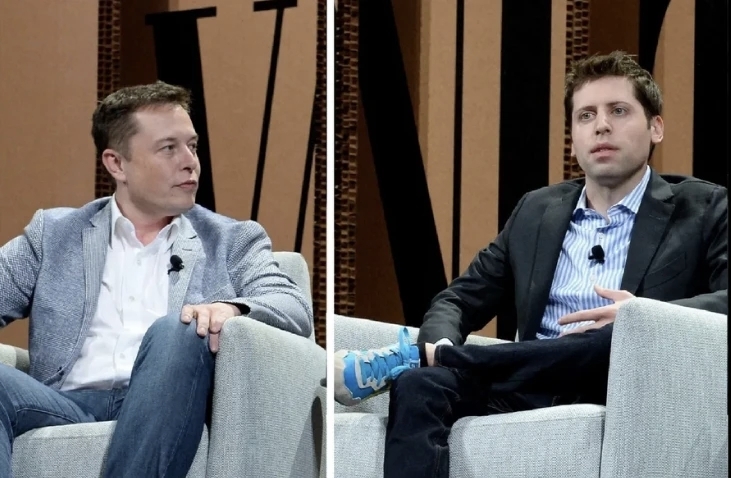
In the tide of technological development, competition in the field of artificial intelligence is becoming increasingly fierce. On August 25, 2025, xAI and X Company, owned by Musk, took Apple and OpenAI to court, accusing them of conspiring to monopolize. This move caused a huge stir in the international technology community and sparked in-depth thinking about the competitive landscape of the artificial intelligence market and the issue of monopolies by tech giants.
In recent years, OpenAI has emerged as a force to be reckoned with in the generative AI chatbot market with ChatGPT, capturing approximately 80% of the market share in the United States and establishing itself as a leader in the industry. As a global giant in the smartphone market, Apple holds approximately 65% of the share, and its iOS system and app store have a strong say in the mobile ecosystem. The cooperation between the two seemed natural and logical, but it was seized upon by Musk as a "handle".
Musk accused Apple of taking advantage of its control over the iOS app Store to favor OpenAI through algorithmic rankings, recommendation position allocation and other means. In the App Store, ChatGPT has long held a dominant position in artificial intelligence applications and received extensive exposure, while products like xAI's Grok have struggled to stand out. This kind of differentiated treatment makes it difficult for the products of other AI enterprises to gain sufficient user attention and download volume in the Apple ecosystem, seriously hindering fair competition. The in-depth collaboration between Apple and OpenAI, integrating ChatGPT into the iOS system, has made it the only AI model capable of obtaining feedback from the usage data of hundreds of millions of iPhone users. This undoubtedly brings OpenAI a significant data advantage and further consolidates its market position.
For Musk, there are multiple reasons for this lawsuit. From a commercial perspective, Grok, launched by xAI as a competitor to ChatGPT, has been suppressed within Apple's ecosystem, which has affected its market promotion and business prospects. After Musk acquired X (formerly Twitter), he has been committed to creating a "super app" that integrates functions such as communication, payment, content, and AI assistants. Grok is the key to realizing this vision. However, the collaboration between Apple and OpenAI has posed numerous obstacles for X and Grok during their development, threatening their dream of becoming "super apps".
From a historical perspective, there have long been conflicts between Musk and OpenAI. OpenAI was originally an artificial intelligence research institution dedicated to open source and public welfare, and Musk was once an important supporter of it. However, as OpenAI received huge investments from giants like Microsoft and gradually commercialized, the relationship between the two sides changed. Musk believes that OpenAI has deviated from its original intention and has become a "closed subsidiary" of Microsoft, losing its open and transparent spirit of scientific research. This lawsuit can also be regarded as Musk's counterattack against a series of actions by OpenAI.
Apple responded that its recommendation mechanism is objective and based on user behavior data, with no human intervention involved. OpenAI, in turn, accused Musk of manipulating the market, and the two sides held their own views. However, from the perspective of industry development, this lawsuit holds significant importance. If Musk wins the lawsuit, it may break down the market barriers built by Apple and OpenAI, prompting Apple to adjust the rules of its app store, providing other AI products with fairer competition opportunities, and promoting the development of the artificial intelligence market towards a more open and competitive direction. This will also inject new vitality into the innovation of the AI industry and encourage more enterprises to invest in the research and development and application of artificial intelligence. Conversely, if Apple and OpenAI win the lawsuit, it may further consolidate their market positions, intensify market monopolies, and have an adverse impact on the innovation and development of the industry.
The lawsuit filed by Musk against Apple and OpenAI is not merely a commercial dispute among several companies, but also a fierce collision of market competition and monopoly, innovation and development in the era of artificial intelligence. This incident will draw more global attention to the issue of tech giants' monopolies and may also prompt regulatory authorities to strengthen supervision over the field of artificial intelligence, promoting the industry to develop on a fair and healthy track.

Driven by the Trump administration's push to relax financial regulations and the recovery of investment banking business, the market value of the six major banks in the United States has cumulatively increased by approximately 600 billion US dollars by 2025.
Driven by the Trump administration's push to relax financia…
On Christmas evening, U.S. President Trump posted on social…
According to multiple foreign media reports, the recent fin…
The middle class, once regarded as the cornerstone of Ameri…
On December 19th local time, the US military launched a lar…
The Boxing Day sunshine should have cast a false glow of pr…